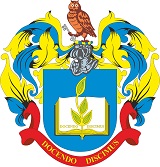Please use this identifier to cite or link to this item:
http://46.63.9.20:88/jspui/handle/123456789/480| Title: | Professional Physical Training of Future Border Guards Revista Romaneasca pentru Educatie Multidimensionala |
| Authors: | Marionda, Ivan Romanishyna, Lyudmila Starchuk, Oleksandr Lisnichenko, Yuriі Maslii, Oleh Torichnyi, Oleksandr Dyakov, Svyatoslav Nanivskyi, Roman Galus, Alexander Ollo, Vasyl Sinkevych, Serhii Kapinus, Oleksandr |
| Keywords: | health motor skills military students functional capabilities |
| Issue Date: | 2020 |
| Publisher: | Scopus |
| Citation: | Ivan Marionda, Lyudmila Romanishyna, Oleksandr Starchuk, Yuriі Lisnichenko, Oleh Maslii, Oleksandr Torichnyi, Svyatoslav Dyakov, Roman Nanivskyi, Alexander Galus,Vasyl Ollo, Serhii Sinkevych, Oleksandr Kapinus. 2020. Professional Physical Training of Future Border Guards Revista Romaneasca pentru Educatie Multidimensionala. Scopus |
| Abstract: | The improvement of professional military education is the most important part of reforming state power departments. One of its components is the professional training of cadets in higher military educational institutions. One of the key places in this process belongs to the physical training of cadets, which is aimed at forming their readiness to achieve tasks of professional military training. Therefore, the current research aims to theoretically justify and verify the effectiveness of the programme for professional and personal physical training of future border guards. Based on the results of the initial survey, two groups of cadets were formed (only 419 individuals). The control group (210 individuals) and the experimental group (209 individuals) included cadets with approximately identical indices of a functional state. After conducting pedagogical research based on the designed model for increasing physical readiness of future border guards for professional activity, the proposed programme for professional and personal physical training of future border guards was proved to be highly effective. Indeed, 94% of cadets completed the programme, successfully passed an annual medical examination and met the established standards of physical training during the covered period of training. A vital index increased by 10.8%, overall working capacity (based on the results of a step-test) – by 18.7%, maximum voluntary ventilation – by 20.1%, heart rate recovery – by 19.4%. |
| URI: | https://doi.org/10.18662/rrem/13.2/435 http://46.63.9.20:88/jspui/handle/123456789/480 |
| Appears in Collections: | Кафедра менеджменту освіти та педагогики вищої школи |
Files in This Item:
| File | Description | Size | Format | |
|---|---|---|---|---|
| 3073-Article Text-14181-1-10-20210817.pdf | стаття | 601,63 kB | Adobe PDF |  View/Open |
Items in DSpace are protected by copyright, with all rights reserved, unless otherwise indicated.
